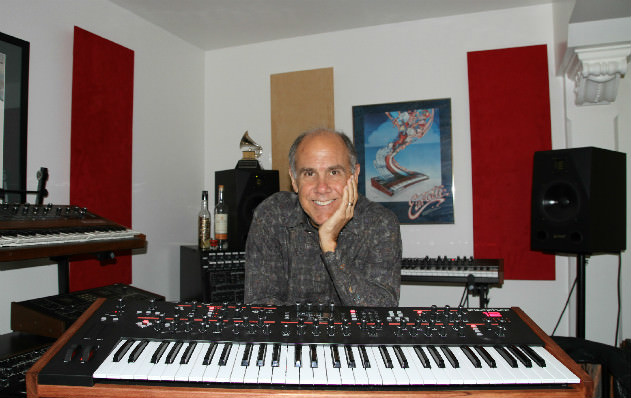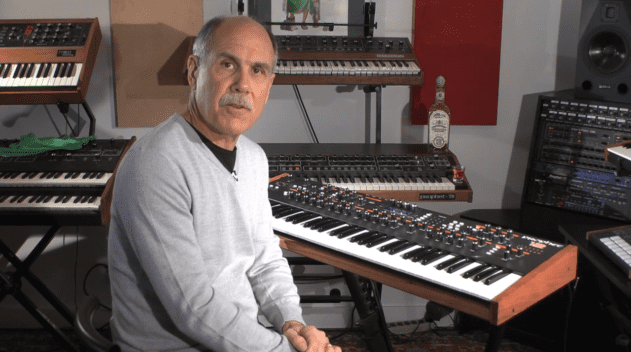Do you have regrets? Are there products, business decisions or overall strategies which you’d go back and change if you could?
Life is too short for regrets! Don’t look back, look forward.
And, coming back to that same point about how you’re always looking forward, you don’t seem one to rest on your laurels. What do you still want to achieve?
Just continuing as I have been. Business has been great, so we have the advantage of choosing our products based on what would be the most fun to design, and produce the coolest products. The Prophet 12 and Tempest are perfect examples.
From an outsider’s perspective it’s difficult to get a feel for the scale of the synth market. From our viewpoint it’s easy to assume it’s a huge, lucrative business. Do you consider what DSI does to be a niche, boutique product or are you still aiming at the same kind of musician as you were back in the 70s or 80s? How has the typical customer changed over the years, from the Sequential Circuits days to now?
Real synths are a smaller niche market. In the Prophet-5 days it was a larger market, since there were no romplers out yet. That’s what most players always wanted, access to the usual piano/organ/brass/strings sounds. It just happened that the P5 was the first instrument that provided this capability. The fact that it was an analog synth was somewhat secondary. Fortunately there are still a large number of people who want to play a real synth!
Business has been great, so we have the advantage of choosing our products based on what would be the most fun to design, and produce the coolest products.
Back in the mid 70s the synthesiser hadn’t yet fully established itself as an instrument in its own right. Did you ever foresee a day when music made almost entirely with synthesisers and drum machines would be quite so dominant in popular music?
This happened a reasonable amount in the 80s. There’s always an eventual backlash in musical tastes that gravitate back to guitar/bass/drums bands; it’s cyclical and in that sense somewhat predictable.
How has the scale of the business changed over the course of your career? Has the number of units you produce grown or shrunk from, say, the Pro One to the Mopho Keyboard?
We sell fewer units now mostly since I want to keep the company small. It was too much of a headache going the route we did at Sequential. We have a lot more fun now with a small group, and it’s much better on the business side.
Without naming names, some of your old rivals from the 70s and 80s have shifted focus toward workstations and ROMplers, presumably because that kind of keyboard appeals to a large market of gigging musicians. At the same time they’re trading on the names of their classic analogue products. Is the market for that kind of digital product bigger and potentially easier to tap into than the more specialist market for analogue gear?
As mentioned earlier, most musicians just need a good slab keyboard. And the big companies just keep making the same thing over and over, and now keep re-building digital approximations of their old products. With exceptions of course. It seems to be marketing-department driven, i.e. let’s build something that looks somewhat old and somewhat analog, just to sell units. Not very interesting in my opinion.
The big companies seem to be marketing-department driven, i.e. let’s build something that looks somewhat old and somewhat analog, just to sell units. Not very interesting in my opinion.
People perhaps don’t realise the relative affordability of today’s synths. The Prophet 5 was, I think, $4,495 on release in 1978 (£3,395 in the UK), which equates to about $16,000/£16,500 today if you take inflation into account. By comparison, the Prophet 12 is a little under £2,300. Are we living in a golden era for analogue synths and drum machines without realising it?
There’s certainly much more bang for the buck now, especially when you factor in soft synths, many of which are basically free. Which is a good thing, since it gets a lot more people into synths. After they use them for a while, they’re ready to try the real thing, and they appreciate the difference immediately. We have a complete line of mono- and poly-synths from under $400 to our new flagship Prophet 12, so there are many choices all at prices unheard of 35 years ago!


11.17 AM
The man seem authentic and he has a great work philosophy. I’m proud owning a Mopho! And hopefully I’ll put my hands on a tempest at some point.
10.48 AM
Great intreview!
02.02 PM
“This may be why some software companies are now making analog hardware synths.”… well this doesn’t make them “software companies” then does it.
04.25 PM
“This may be why some software companies are now making analog hardware synths.”… well this doesn’t make them “software companies” then does it.
Umm, like it’s not obvious he primarily means Arturia. The Brutes are awesome. I own and love them, but Arturia is still mainly a VST company.
11.38 PM
>>Is there ever any temptation to make another VCO-based synth to satisfy >>vintage purists?
>Not really; I prefer to move forward with interesting ideas for new >instruments, rather than follow some set of rules.
>To me, the key is in the analog filters; in the Prophet 12 we have digital >oscillators simply because analog were not precise enough and did not give >us all the features we wanted.
Haha! Now 2015 he did P6 so what he said in 2013 is nothing more then
marketing bullshit!
06.59 PM
@Labus: you are the one speaking absolute rubbish! Clearly you are not understanding that those are 2 products with 2 very different philosophies in the same way as P08 vs Evolver. One is ” modern revival product” the other is a brand new instrument on its own right!